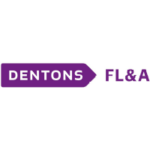-
What are the principal sources of laws and regulations relating to shareholder rights and activism? Do insider trading and/or market abuse rules apply to activist activity?
The primary framework governing shareholder rights and activism in Israel derives from statutes and regulations. The primary law is the Companies Law, 1999 (the “Companies Law”), which sets out private and public company corporate governance rules (including shareholder meetings, director election, fiduciary duties, shareholder protections, special approval requirements, proxies and voting rights). Public companies are also subject to the Securities Law, 1968 (the “Securities Law”), which governs securities’ markets, public offerings and addresses disclosure requirements, insider trading issues and market conduct, establishing the regulatory framework for public companies. While the Securities Law has local jurisdiction, applying to the Israeli market, the Companies Law is personal, and applies (subject to certain dispensations) to all Israeli companies, including those traded on foreign stock exchanges, such as Nasdaq, NYSE and LSE.
Key regulations under these laws include the Companies Regulations (Written Voting and Position Statements), 1999; Companies Regulations (Notice and Announcement of General Meetings and Adding Items to Agenda), 2000; Securities Regulations (Periodic and Immediate Reports), 1970; and Securities Regulations (Transactions with a Controlling Shareholder).
The Israeli Securities Authority (“ISA”) issues regulations, directives, and staff positions that interpret and implement relevant provisions of the Securities Law and the Companies Law.
In addition, institutional investors must comply with sectoral laws (such as the Joint Investment Trust Law, 1994, for mutual funds) and directives that encourage them to vote and engage in investee companies. There are also “soft law” influences – proxy advisory guidelines (such as those issued by consulting companies Entropy and Emda) – which, while not legally binding, significantly influence how institutional shareholders vote and engage.
The general market abuse framework (insider trading, market manipulation, fair disclosure) applies fully to activist situations, and activists are subject to the same restrictions as other market participants. In practice, this means that if an activist becomes an “insider” (for example, by obtaining non-public financial data or joining the board), he must refrain from trading using that information until it becomes public. Companies, in turn, must ensure they do not selectively disclose material information to one shareholder without making it public to the entire market.
-
How is shareholder activism viewed in your jurisdiction by regulators, shareholders (both institutional and retail) and the media?
Historically, the Tel Aviv Stock Exchange (“TASE”) was characterized by companies having distinct controlling shareholders, holding 50% or more of the voting power. However, recent years have seen a substantial increase in the number of TASE traded public companies, which do not have a controlling shareholder. This change created more opportunities for activist campaigns. In parallel, shareholder activism has become viewed positively both by regulators, especially regarding non-controlled companies, and by shareholders, particularly institutional investors.
The ISA actively supports shareholder activism by deeming certain anti-takeover mechanisms illegal, as they can limit shareholder powers vis-à-vis management, and by encouraging institutional investors’ involvement as means to improve corporate governance. That said, regulators still expect activists to comply with all rules (including reporting and insider trading restrictions) and not destabilize markets.
The Israeli Companies Law facilitates activism by allowing shareholders with as little as 1% of voting rights to file shareholder proposals at general meetings, and shareholders with more than 5% of issued share capital to call special shareholder meetings.
The media in Israel covers high-profile activist campaigns, generally highlighting the activists’ critiques of management and the resulting share price reactions. Activism led by institutional investors is viewed as legitimate – focusing on long-term governance and performance improvements. Although some foreign hedge funds targeting Israeli companies may receive less favorable media coverage, overall, the press recognizes activism as an established element of corporate life rather than an affront.
-
How common are activist campaigns and what forms do they take? Is activism more prevalent in certain industries? If so why?
Activist campaigns have become increasingly common in Israeli companies over the past decade. Though not as ubiquitous as in the U.S., campaigns occur multiple times a year, especially in companies with dispersed ownership.
Common forms of activism include:
- Removal of incumbent directors and appointment of shareholder nominees to boards
- Legal actions and derivative suits
- Position papers and controller-shareholder negotiations
- Corporate structure amendments to change articles of association
- Strategic changes (such as mergers or refocus of core business)
- Improvements in capital allocation (higher dividends or buybacks)
Activism is particularly notable in Israeli incorporated NASDAQ-listed companies. These companies are mainly in the technology and life science spaces and have a dispersed ownership structure. As foreign private issuers (FPIs), these companies operate under a hybrid US-Israel corporate governance regime, which creates varying opportunities for activist shareholders.
-
How common is it for shareholders to bring litigation against a company and/or its directors and what form does this take?
Shareholder litigation against companies and directors takes two main forms under Israeli law:
Derivative Actions: Under the Companies Law, any shareholder or director may bring a derivative claim in the name and on behalf of the company. This is a significant enforcement mechanism for shareholder rights and a common tool for minority shareholders to seek redress for wrongs done to the company when the company itself (under control of wrongdoers) fails to sue. Notably, the ISA sometimes agrees to financially support a derivative action if it has public interest and a reasonable chance of success.
Class Actions: The Israeli Class Action Law, 2006, provides the possibility for shareholders (or investors) to file class actions on behalf of a class of shareholders – typically for Securities Law violations or misrepresentations that impacted the share price, or other wrongs that harmed all shareholders as a class. These suits are quite common, for example, in cases like financial misstatements, failure to disclose material information, or unfair related-party transactions. As with derivatives, the ISA may fund a class action if it serves the public interest and has a reasonable chance to succeed.
In certain cases of squeeze-outs or mergers, shareholders can also litigate for a judicial determination of “fair value” of their shares. Some activist campaigns may also reach legal proceedings where enforcement action is taken against companies and boards refusing to conform with activist shareholders’ demands.
Shareholder lawsuits (especially class actions) have become relatively common in Israel’s capital market. It’s not unusual for major corporate scandals or sharp stock drops to trigger class action filings. Derivative actions are somewhat less frequent than class actions (given procedural hurdles), but still a known tool – often the credible threat of a derivative suit can lead companies to settle claims or improve governance. Many high-profile corporate disputes – particularly involving conflicted transactions or corporate governance failures – have ended up in court through these mechanisms.
-
What rights do shareholders/activists have to access the register of members?
By law, every company must maintain a Shareholders Register listing all registered owners, and (for a public company) a register of substantial shareholders (persons holding 5% or more). Such registers must be open for inspection by any person.
However, there is a distinction between “registered” shareholders and ultimate beneficial owners. Almost all shareholders in TASE listed companies hold their shares through banks/brokers in “street name” (the formal registered owner is a nominee company). Accordingly, an activist can typically obtain the list of nominee shareholders from the register, but to get the underlying beneficial holder names, activists often rely on their own networks or on regulatory filings (anyone holding 5% or more must file a report disclosing their stake – see 3a below).
The Companies Law does provide that after a general meeting is called, any shareholder holding 5% or more of the votes (or 5% of the votes excluding controlling shareholders’ stake) can inspect the company’s voting records – including who voted and how. This post-meeting disclosure can help activists gauge which shareholders voted on certain proposals.
Beyond registers, shareholders also have a general right to review certain corporate documents like minutes of general meetings and documents relating to a transaction requiring special shareholder approval.
-
What rights do shareholders have to requisition a shareholder meeting and to table a resolution at the meeting?
Shareholders have significant rights to requisition meetings and table resolutions:
Requisitioning Extraordinary Meetings:
For Private Companies: One or more shareholders holding at least:
- 10% of issued share capital AND at least 1% of voting rights, OR
- 10% of voting rights
For Public Companies: One or more shareholders holding at least:
- 5% of issued share capital AND at least 1% of voting rights, OR
- 5% of voting rights
A company’s board must comply with such demand and convene an Extraordinary General Meeting (“EGM”) within 21 days after receiving a valid request. Such meeting must then be held within a reasonable time (not more than 3 months from the demand).
In 2024 an amendment was passed to the Companies Regulations (Dispensations for Companies Whose Securities are Registered for Trade on a Foreign Exchange), 2000 (the “Dispensation Regulations Amendment”). This amendment included a series of changes which have the effect of limiting the ability of activist shareholders to influence Israeli incorporated companies listed on an approved foreign exchange (such as NASDAQ; “Foreign Traded Companies”). Pursuant to the Dispensation Regulations Amendment, as of 2024, a Foreign Traded Company may require 10% ownership to call an EGM (unless the foreign jurisdiction’s rules mandate a lower threshold).
Tabling Resolutions / Adding Agenda Items: Shareholders holding at least 1% of the voting rights may request that the board include a subject on the agenda of a future general meeting. The request must be made within a specified time period after the meeting is announced. If the request is made in time and within the scope of shareholder authority, the board must add the proposed resolution to the agenda and issue an amended notice. Activists commonly use this mechanism to nominate director candidates or propose specific motions at the Annual General Meeting (“AGM”).
Pursuant to the Dispensation Regulations Amendment, as of 2024, the threshold for proposals relating to director nomination or removal for Foreign Traded Companies was increased from 1% to 5% of voting rights.
-
Where a shareholder requisitions a meeting, who is responsible for the costs of calling and holding the meeting?
The Companies Law does not explicitly specify who bears the costs when shareholders request a meeting. However, if a meeting is duly requested by shareholders, the company normally bears the costs of calling and conducting the meeting, while an activist will incur some incidental expenses in mounting a campaign. The Companies Law does provide that if the board fails to promptly convene a meeting that was duly demanded, the requesting shareholders can convene it themselves (through the court), and the company must reimburse their reasonable expenses.
-
Are there any rights to circulate statements to shareholders?
Israeli law permits shareholders to circulate their views to fellow shareholders through a vehicle called “position statements”. A position statement is a formal written communication by a shareholder regarding items up for vote at a shareholder meeting. The board of directors may also issue its own position statement in response to an activist’s arguments.
Apart from issues related to items up for vote at a shareholder meeting, there is no specific statutory right for individual shareholders to require companies to circulate their statements to the shareholder base.
-
Who is entitled to attend and speak at a shareholders’ meeting?
In general, any shareholder of the company is entitled to attend, participate in, and speak at a shareholders’ meeting. Attendance may be in person or by proxy. In practical terms, a record holder of shares as of the meeting’s “record date,” can participate in the meeting or appoint a proxy to participate on his behalf. Beneficial owners who hold shares through a bank or broker can attend by obtaining a proof of ownership as of the record date from their financial intermediary.
At a meeting, the meeting chairman (usually the board chairman) does have authority to manage the meeting in an orderly fashion (e.g., set time limits for each speaker or require that remarks stay on topic), but cannot deny a shareholder (or proxy holder) a reasonable opportunity to be heard.
In addition to the shareholders and the chairman, certain outsiders may attend, like the company’s external auditor (typically attends the AGM), company’s secretary and legal counsel and directors and senior officers who usually attend and may speak to address shareholder questions.
-
What percentage of share capital is needed to appoint or remove a director? What is the process?
In Israeli public companies, directors (except for the “external directors”, see below) are generally appointed and removed by a simple majority of the shareholders’ votes cast at a general meeting (unless the company’s articles require a higher threshold, which is unusual). Conversely, to remove a director, a majority of votes at a general meeting would have to vote for removal. This means shareholders can remove a director with or without cause, unless the articles of the company provide otherwise (most TASE traded Israeli public companies do not have staggered boards or other removal restrictions, except as noted for external directors below).
Directors are usually elected at the AGM. The company will propose a slate of nominees, but importantly, shareholders (holding 1% or more; or 5% in the case of Foreign Traded Companies) have the right, as described above, to add items to the general meeting agenda, including to propose their own director candidates for election. If an activist nominates alternative candidates, the election at the AGM can effectively become a contested vote. If an activist wants to replace directors between AGMs, he can requisition an EGM (with 5% ownership, as discussed) and put on the agenda resolutions to remove specific director and elect new ones. Before dismissal, a director should be given a reasonable opportunity to present his position.
As mentioned above, since 2024, the threshold for shareholder proposals relating to director appointment or removal of Foreign Traded Companies was increased from 1% to 5% of voting rights.
It should be noted that Israeli public companies are required to have at least two “external” (independent) directors, who are elected by a special majority to ensure independence. External directors serve fixed three-year terms and generally cannot be removed mid-term except under limited and extraordinary circumstances. The vote to elect an external director requires a majority of the votes plus either (i) at least a majority of the votes of non-controlling and non-interested shareholders supporting; or (ii) the total votes against by controlling shareholders comprise less than 2% of the company’s voting power.
All directors’ appointments in public companies are transparent. The nominee’s name and resume are circulated in advance, and voting at the meeting is typically on an individual basis for each board seat. If the activist’s nominee gets the majority, they are elected, and the board is reconstituted effective immediately or as of a date set in the resolution.
-
What percentage of share capital is needed to block a shareholder resolution?
The percentage needed to “block” a resolution depends on the type of resolution and the voting threshold required for the approval of the resolution.
In companies traded on the TASE, the approval of most resolutions (including regular director elections) require a simple majority of votes (more than 50% of the voting power participating: “Ordinary Resolution”). Accordingly, blocking an Ordinary Resolution requires 50%+ of the participating voting power. In practice, activists often aim to gather just over 50% of votes to win or block ordinary resolutions. This can include informal cooperation, for example, with Israeli institutional investors. However, if a company does not have 50% shareholder, even a much smaller stake (especially if combined with broad support from others) can cross the 50% threshold at a meeting (given that not all shareholders vote). Therefore, the effective blocking stake might be lower than 50% of the participating voting power– depending on turnout. At times, 20% to 30% of total shares voting against could suffice to defeat the passing of an Ordinary Resolution.
In some cases, a company’s Articles of Association may provide that approval of certain matters will require a special majority (for example, a requirement for a 75% majority to amend the Articles of Association), in which case the blocking threshold is lower.
Notably, Israeli law requires that resolution on certain specific issues require more than an ordinary majority overall. In certain cases, in addition, a majority of the minority (“disinterested shareholders”) is required to approve. In these cases, a small percentage can effectively block by tipping the majority of minority votes. Such issues include: (i) some transactions between a company and its controlling shareholder; or transactions with a third party in which a controlling shareholder has a “personal interest”; (ii) executive compensation for a controlling shareholder or relative; (iii) election of external directors; (iv) approval of the compensation policy for the company’s officers; and (v) a person’s dual tenure as chairman of the board of directors and as the company’s CEO/General Manager. In these cases, a small percentage can effectively block, by tipping the majority of minority votes.
Pursuant to Israeli law, a notable built-in supermajority is required for the approval of squeeze-out, as part of “full tender offer” (as discussed later) – to forcibly buy out minority shares via a full tender offer, the acquirer needs positive acceptance of holders of at least 95% of the company’s shares. Thus, a 5% holding can block a full compulsory acquisition.
-
Do holders of other instruments (e.g. options, warrants, contracts for difference, swaps, cash-settled derivatives) have any of the above rights?
Under Israeli law, holders of derivative instruments generally do not have the same shareholder rights (such as attending meetings or voting and the ability to requisition meetings or propose resolutions), unless and until they hold actual shares (in case of instruments that provide for conversion into actual shares).
In some cases, holders of convertible instruments often negotiate contractual rights at issuance (like the right to attend meetings as observers, or veto certain changes to the rights of the class, etc.). For example, a bondholder might have a say in certain corporate actions under the bond terms, but those are not shareholder rights under company law – they are rights under the contract/indenture. Unless the question of a class meeting of bondholders arises (which is a separate regime), derivative holders don’t get a vote at shareholder meetings.
-
Is stamp duty payable on share acquisitions? Can this be avoided/mitigated (e.g. through use of derivatives)?
No. Israeli law presently does not impose stamp duty on the transfer of shares.
While there is no stamp duty on share transfers, there may be acquisition tax if the target company is classified as a “real estate association” (“Igud Mekarke’in”).
-
To what level can you acquire shares without having to publicly (or privately) disclose your position?
In Israeli public companies, the key disclosure threshold is 5% ownership. A shareholder (or group acting together) can accumulate up to just below 5% of a company’s outstanding shares or voting power without any disclosure to the company or to the public.
Crossing the 5% threshold requires the shareholder to notify the company within one trading day. The company then publishes an immediate report of the holding to the public. Once at 5% or more, every additional change of holdings of 2% or more in the aggregate (either up or down) must also be reported as an immediate report.
The disclosed information includes the shareholder’s name; ID or passport/corporate number; the date and manner of reaching the threshold; and holdings in terms of number of shares and percentage of company.
-
Is the disclosure threshold different if the issuer is subject to a takeover offer?
No, the 5% disclosure threshold remains the same even if the company is in the midst of a takeover bid. That said, during a takeover or tender offer process, any stakeholder who crosses 5% (or changes by 2% above 5%) would still have to file immediately.
-
Are there any rules which restrict the speed at which you can build a position?
Israeli law does not impose specific restrictions on the speed of position building, but several factors may effectively limit rapid accumulation.
Disclosure Hurdles: If an activist wants to continue buying beyond the 5% reporting threshold, they must disclose at 5% and report every 2% increase thereafter, which may drive the stock price up as the market reacts to the activist’s presence. This doesn’t legally prohibit fast buying, but it influences behavior.
Insider Trading Rules: If the position builder has access to material non-public information, insider trading restrictions may limit trading activities.
Market Manipulation Concerns: Rapid accumulation that appears designed to manipulate share prices could trigger market manipulation investigations by the ISA. An activist must be careful not to engage in market manipulation (for instance, placing orders in a manner intended to spike the price unnaturally to scare off others).
Practical Limitations: Liquidity constraints and the relatively small size of many Israeli public companies may naturally limit the speed of significant position building.
Takeover (tender offer) Rules: There are step-function rules in place. If building a position triggers a requirement to make a tender offer (see 3(d) below), that effectively slows the activist down at certain points. Specifically, approaching 25% or 45% ownership has legal implications. For example, if no one currently controls the company, a shareholder who wants to go beyond 25% cannot just rapidly cross that line by market purchases – they would need to comply with the special tender offer process (which by nature takes time and requires offering to all shareholders). Thus, the activist either stops short of 25% or has to pause and go through a formal process, which limits “speed” at high levels.
In some cases, required governmental approvals can indirectly slow down an acquisition. For example, acquiring certain positions in banks and insurance companies will require regulatory approvals, or if the activist has business overlaps with the target, antitrust regulatory approvals may be required.
-
Are there circumstances in which a mandatory takeover is required?
Yes. Israeli law mandates that a tender offer to all shareholders must be made in certain circumstances when a shareholder’s stake crosses specified control thresholds. There are two key scenarios for a mandatory offer (called a “special tender offer”) under the Companies Law:
- Acquiring 25% or more of the voting rights in a company, where no other shareholder holds 25% or more. In this case, the purchaser seeking a “control stake” must do so by way of a special tender offer to all shareholders for at least the number of shares that would bring them to 25%. If another shareholder already holds 25% or more, this rule is not triggered at that level (because the company is considered to have a controlling bloc already).
- Acquiring more than 45% of the voting rights, where no other shareholder holds over 45%. This is essentially the threshold for outright control. If the company has no majority owner (no one over 45%), a person who wants to exceed 45% must also do it via a special tender offer. If someone already holds 45% or more, then crossing 45% by someone else is not applicable.
There are a few exceptions where a mandatory special tender offer is not required, despite crossing such thresholds: mainly, (i) if the stake is acquired through a private placement approved by shareholders specifically for bestowing a controlling stake. In such a case, the general meeting’s approval replaces the need for a tender offer (shareholders effectively consented to the new controller); or (ii) acquisitions directly from an existing controlling shareholder that results in a new controlling shareholder.
If a shareholder breaches these rules (i.e., buys above the threshold without an offer), the “surplus” shares over and above 25% or 45% do not carry voting rights and the acquisition might be void or unwound.
Another scenario requiring a mandatory takeover is in the case of a “Full Tender Offer” for 100% if someone reaches the 90% ownership threshold. Under Companies Law, if an acquirer wishes to own 100% of a public company, he must execute a full tender offer to purchase all remaining shares. A squeeze-out can only be forced if the offer is accepted by shareholders holding at least 95% of the company’s shares.
Tender offers require regulatory approval and must comply with detailed procedural requirements under the Companies Law, the Securities Law and the relevant regulations.
-
Does collective shareholder action or ‘acting in concert’ have any consequences in your jurisdiction (e.g for disclosure purposes or the rules on mandatory offers)?
Yes. The Securities Law definition of “holding” attributes holdings of affiliates and family members to one another, as well as holdings of separate shareholders who are party to an explicit or implicit agreement regarding their shareholding (for example, via an agreement to vote together). Such shareholders are effectively treated as one unit (“holding together”) in several respects, which has implications for both disclosure and takeover rules.
For disclosure purposes, shareholders “holding together” are regarded as a single “holder”. Practically, if two activists each have 3% and they form a pact, together 6%, that concerted 6% should be disclosed as soon as they form the agreement.
For mandatory offers (e.g. for the calculation of the 25%/45% thresholds), shareholders “holding together” are also regarded as a single “holder”.
It should be noted that not all parallel action is deemed as “acting in concert.” Simply voting the same way by coincidence or informal discussions that fall short of an agreement likely would not trigger it. Acting in concert usually requires some arrangement or understanding. Accordingly, in Israel, many activism cases involve loose coalitions where each institution still decides case-by-case, precisely to avoid being labeled a formal “group” with regulatory implications.
The Israeli Competition Authority had historically cautioned institutional investors that coordinated activism could raise antitrust issues (since institutions banding together might be seen as a restrictive arrangement). Recently, the Israeli Competition Authority clarified that certain cooperation among institutions on specific matters is not an antitrust violation under specified conditions (e.g. focus on one company, no competitive relationship, limited info exchange).
-
Do the same rules and thresholds apply to other instruments (e.g. options, warrants, short positions, contracts for difference, swaps, cash-settled derivatives)?
The same rules formally apply only to shares and voting rights. Derivative instruments do not on their own trigger disclosure or mandatory bids until they translate into shares.
That said, once an investor is a 5% shareholder, they must disclose their derivative positions relating to the company. As part of the 5% (and above) disclosure, the law mandates revealing “holdings in derivative securities” whose value derives from the company’s shares.
Short positions have no rights and are not considered holdings, and there is no reporting of short positions by shareholders under Israeli law.
-
If an activist makes a takeover offer, what impact might any prior share purchases have on the minimum offer price or the form of consideration that must be offered?
Although Israeli law does not prescribe a strict “best price” rule, there are several important considerations regarding a takeover offer:
Fair Price and Board Opinion: In a mandatory special tender offer (for crossing 25% or 45%) or any voluntary tender offer, the board of the target company is required to disclose any personal interests of board members and either opine that the offer price is fair or explain why it cannot do so.
Minority Squeeze-Out and Appraisal: If the takeover is a full tender offer aiming for 100%, the Companies Law provides appraisal rights for minority shareholders who are squeezed out. In such cases, the court will determine fair value. The law allows the bidder, as part of the tender offer, to revoke such right of appraisal for shareholders accepting the offer, but non-accepting minorities can still go to court requesting the appraisal remedy.
Equal Treatment of Shareholders: During a tender offer, all shareholders of the same class must be offered the same price and form of consideration. Israeli regulations mandate that the tender offer document contain the full terms, and those terms apply uniformly to all offerees in that class. In a special tender offer (partial offer to reach just over 25% or 45%), if more shares are tendered than the amount sought, purchases are made from shareholders on a pro rata basis, ensuring no favoritism.
Type of Consideration: Israeli law does not restrict the form of consideration in takeovers – cash, shares, or a mix are all permissible. However, in practice, offering securities (like shares of the bidder) might complicate minority acceptance and may require some form of prospectus.
-
What measures are available to companies to protect against an activist campaign?
Israeli companies can employ both proactive governance measures and reactive defenses to deal with activist campaigns, though the toolkit is somewhat limited. Key measures include:
Proactive Engagement and Transparency: One of the most effective “defenses” is not a defense in the combative sense, but rather preventative engagement. Boards are advised to maintain open lines of communication with major shareholders and address concerns before they escalate. By understanding shareholder perspectives on issues like strategy, dividend policy, or executive pay, management can preempt activist criticisms or at least not be caught off guard. Many Israeli companies now hold regular investor meetings or calls, and some even reach out to institutions prior to general meetings to discuss board nominee suitability. This builds goodwill and can rally supportive shareholders if an activist emerges. While engagement itself is not a “shield” that blocks an activist, it can mitigate the likelihood of a hostile campaign or reduce other shareholders’ receptivity to the activist’s critique.
Bylaw and Structural Defenses: Israeli companies can have certain structural defenses, though they are somewhat constrained by law and investor expectations. Staggered boards (classified boards) are not very common, but some companies might have them (requiring an activist to win multiple elections over time to take control). Dual-class share structures (disproportionate voting rights) are rare on TASE (and new ones might not be allowed for TASE companies under current rules), so that is usually not in play. Poison pills (shareholder rights plans) – in Israel there is no explicit legal prohibition on poison pills, but historically they have not been widely used. One reason is that many Israeli companies had controlling shareholders who themselves served as a “pill” against outsiders. In widely held companies, which are becoming more common on the TASE, a board could theoretically adopt a rights’ plan (for example, issuing contingent rights to dilute anyone who acquires above a threshold). However, such an action would likely be subject to shareholder approval or could be challenged as breaching directors’ duty if done solely to entrench the board against a legitimate shareholder action. Israeli boards tend to avoid extreme measures that could be seen as denying shareholders their voice, especially since institutional investors (holding significant stakes) would oppose it.
Lobbying Other Shareholders: Management will often campaign vigorously to convince other shareholders that the activist’s agenda is not in the company’s best interest, including by publishing a formal board position statement recommending how to vote.
Litigation and Regulatory Complaints: If an activist is breaching rules, a company can take legal action. Also, companies occasionally try to use litigation to delay or block activist actions – for instance, challenging the validity of an activist’s meeting requisition or nominations on technical grounds.
-
What duties do directors owe to a company and its shareholders? Highlight any that are particularly relevant in the context of an activist campaign.
Directors of Israeli companies owe two primary fiduciary duties under the Companies Law: a duty of care and a duty of loyalty (fiduciary duty) – both are owed to the company itself. In the context of an activist campaign, these duties frame how the board must respond.
Duty of Loyalty (Fiduciary Duty): Directors must act in good faith and in the best interests of the company as a whole. They cannot prefer their personal interests (such as keeping their board seats or allegiances to the management or controlling shareholder) over the company’s interests. In an activist situation, this is crucial: the board must genuinely consider the activist’s proposals on their merits – how they impact the company’s welfare – rather than automatically opposing the activist to preserve their positions. If an activist’s plan is genuinely value-enhancing, directors might breach their duty by rejecting it solely to avoid change.
Duty of Care: Directors must exercise reasonable care and skill in performing their duties. During activist campaigns, this includes properly evaluating activist proposals, seeking appropriate professional advice and making rational informed decisions based on adequate information. Courts in Israel generally apply a Business Judgment Rule (BJR) protecting directors’ decisions made in good faith and on an informed basis.
-
What rights does a company have to require parties to disclose details of their interests (direct and indirect) in the company’s share capital?
A company’s direct powers to compel disclosure of share ownership are limited. Israeli law does not give companies a general statutory right to send notices requiring shareholders to reveal beneficial ownership or concert parties. Instead, disclosure of interests is governed mainly by the legal reporting obligations on shareholders and insiders themselves (enforced by the regulator), not by company demand.
The primary mechanism is the statutory 5% disclosure rule discussed above, pursuant to which the company does not have to ask, as the burden is on the shareholder to report promptly. Additionally, directors, CEO and senior management must report their holdings (even below 5%), so the company knows insider ownership.
The ISA has powers to investigate shareholding patterns and may require disclosure of indirect interests, particularly in takeover contexts.
-
Are there restrictions on companies selectively disclosing inside information to activists?
Yes. Israeli Securities Law prohibits selective disclosure of material non-public information, unless done under confidentiality for a legitimate purpose. There is a general principle of equal information – a company should not give an advantage to some investors over others by sharing insider information privately. If a company discloses “inside information” (any specific information about the company that is not public and would likely have a material effect on the share price) to an activist shareholder without making it public, it risks violating insider trading and fair disclosure regulations.
Standard practice in Israeli public companies is that companies avoid disclosing new material information in private meetings. If they do share any significant information with one investor, they often concurrently or beforehand publish it publicly (for example, investor presentations are uploaded to the TASE website if they contain any substantial information beyond what is in reports).
If a company insider (which includes directors, officers, and arguably controlling shareholders) “tips” an activist with inside information and the activist trades on it, both parties could be liable for insider trading.
If an activist signs a confidentiality agreement, the company can share some non-public information to facilitate discussions (this happens in settlement talks frequently, e.g., sharing draft earnings or plans). This is legal because the activist becomes an “insider” who must not trade or tip others until it is public. But it is a risk for the activist because they lose freedom to trade and might get information they must sit on. Some activists prefer not to receive inside information for that reason (so they can continue trading). The company, on the other hand, might insist on an NDA to speak freely.
-
Are settlement agreements between a company and an activist permitted in your jurisdiction? How common is it for activist campaigns to be resolved in this way?
Yes, settlement agreements are permitted and have become increasingly common in Israel to resolve activist situations. There is no law prohibiting a company from entering into an agreement with a shareholder (activist) to settle a proxy fight or campaign. In fact, such agreements are seen as a pragmatic solution to avoid prolonged conflict.
Such settlements typically include elements like the company agreeing to appoint one or more of the activist’s nominees to the board, possibly leadership changes (e.g., new chairman), and in exchange the activist agrees to a “standstill” for a defined period. A standstill means the activist will not increase their stake beyond a certain amount, launch new campaigns, or solicit proxies during that period. Other terms might be the activist’s support for management’s slate and proposals, and sometimes formation of a committee to consider some of the activist’s ideas.
These agreements must adhere to disclosure rules. If the agreement itself is material, it often must be published. Indeed, an agreement that gives an activist board seats or otherwise influences control or governance is considered a material event requiring an immediate report to the public.
The main legal concern with settlement agreements is ensuring they do not violate the principle of equality among shareholders. By their nature, such agreements give one shareholder (the activist) specific benefits (like board seats, reimbursement of expenses perhaps, or say in management) not given to others. Israeli corporate law requires that the company not unfairly discriminate among shareholders. There has not been a case invalidating a settlement agreement on these grounds yet. However, typically these agreements are framed as actions the board is empowered to take (appointing new directors within the allowed number, etc.) and as such are within the board’s business judgment (presuming they believe it is in the company’s best interest to make peace).
In terms of enforceability, most settlement agreements are honored by both sides, but enforceability has not been truly tested in court.
Overall, settlements are an accepted part of the activist landscape in Israel, echoing the global pattern towards negotiated solutions.
Israel: Shareholder Activism
This country-specific Q&A provides an overview of Shareholder Activism laws and regulations applicable in Israel.
-
What are the principal sources of laws and regulations relating to shareholder rights and activism? Do insider trading and/or market abuse rules apply to activist activity?
-
How is shareholder activism viewed in your jurisdiction by regulators, shareholders (both institutional and retail) and the media?
-
How common are activist campaigns and what forms do they take? Is activism more prevalent in certain industries? If so why?
-
How common is it for shareholders to bring litigation against a company and/or its directors and what form does this take?
-
What rights do shareholders/activists have to access the register of members?
-
What rights do shareholders have to requisition a shareholder meeting and to table a resolution at the meeting?
-
Where a shareholder requisitions a meeting, who is responsible for the costs of calling and holding the meeting?
-
Are there any rights to circulate statements to shareholders?
-
Who is entitled to attend and speak at a shareholders’ meeting?
-
What percentage of share capital is needed to appoint or remove a director? What is the process?
-
What percentage of share capital is needed to block a shareholder resolution?
-
Do holders of other instruments (e.g. options, warrants, contracts for difference, swaps, cash-settled derivatives) have any of the above rights?
-
Is stamp duty payable on share acquisitions? Can this be avoided/mitigated (e.g. through use of derivatives)?
-
To what level can you acquire shares without having to publicly (or privately) disclose your position?
-
Is the disclosure threshold different if the issuer is subject to a takeover offer?
-
Are there any rules which restrict the speed at which you can build a position?
-
Are there circumstances in which a mandatory takeover is required?
-
Does collective shareholder action or ‘acting in concert’ have any consequences in your jurisdiction (e.g for disclosure purposes or the rules on mandatory offers)?
-
Do the same rules and thresholds apply to other instruments (e.g. options, warrants, short positions, contracts for difference, swaps, cash-settled derivatives)?
-
If an activist makes a takeover offer, what impact might any prior share purchases have on the minimum offer price or the form of consideration that must be offered?
-
What measures are available to companies to protect against an activist campaign?
-
What duties do directors owe to a company and its shareholders? Highlight any that are particularly relevant in the context of an activist campaign.
-
What rights does a company have to require parties to disclose details of their interests (direct and indirect) in the company’s share capital?
-
Are there restrictions on companies selectively disclosing inside information to activists?
-
Are settlement agreements between a company and an activist permitted in your jurisdiction? How common is it for activist campaigns to be resolved in this way?









